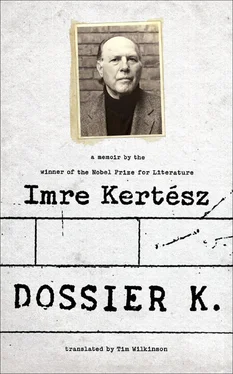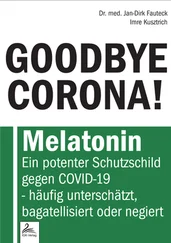Plus the Communist Party .
Well yes, there must have been some slight connection between the two. Life so had it that I came across mainly girls from well-to-do middle-class families, but I was in the painful position that I never had enough money to pay for them. Our group would engage in vitriolic debates about the meaning of life and the vulgar role played by money: I would win the arguments, but not the girls. I wouldn’t be surprised if that was what started my interest in class struggle. But then again, let’s face it, society was still full of discredited Fascists. At the time, “Holocaust denial” was as yet an unheard-of concept, of course, but tendencies of that kind had already started to crop up in the press and in private conversations. On the other hand, I was not able to identify with the strictly “Jewish” arguments, either: I was not drawn to Zionism, I was repelled by Jewish self-pity, I had no interest in religion, and I was irritated by a suspicion that I should be seeking out the anti-Semite in everybody. A classless society seemed to me to be truly the best solution, but the very first time I appeared at the “district,” I hit the major snag of finding myself face-to-face with a concierge who had been a well-known Fascist in our area. How did he come to be there? Oh yes, he grinned; when the war was over he instantly joined the Party. I had a word with someone — possibly the district Party secretary himself. He then proceeded to explain to me that yes, indeed, Fascism had duped many members of the proletariat, they had to be enlightened — or “re-educated,” as he put it — but this was a matter of proletarians who were “capable of progress” and had to be set on the correct path. That rather upset my in any case sensitive stomach, but however averse I was to the concierge and the Party secretary it did nothing to alter my attraction to radical social solutions. After Auschwitz, I felt the correct thing to do was not to base my relationships on personal feelings but on the principles of social progress.
Hmm!
Yes of course! It was bloody stupid of me, as I soon realized.
How did that hang together with all those American films, the billiard hall, the school-leaving exams, and the afternoon teas?
Strange as it may seem, everything did hang together. Something was brewing inside and around me, in my narrower existence and in the wider world. Political dominance, the so-called “year of decision,” lay ahead. A sense of being free had never before tapped me on the shoulder, and there, all of a sudden, I was free, albeit not in the best sense, as I had not yet been grabbed by my big, true, lifelong choice. What has been left in me from those three years, as a matter of fact, is an impression of intensive life, but as to whether that was an intellectual experience or rather the volatile vitality of incipient manhood — that I couldn’t tell you. Whenever I think of those times I am reminded of Talleyrand’s famous utterance: “He who did not live in the years before the revolution cannot know what the sweetness of living is.” What I vividly remember is being constantly in love, and I’m not referring to one love in particular (or several) but to my attitude to life itself. Reading a book was for me just as much an erotic experience as peeling a bra from a girl’s breasts or losing myself in the melancholy of undistrainable life or the unrivalled sweet happiness with which only the young are acquainted. But I get the feeling that I am starting to lift off into “poetic realms” that in all likelihood are of no interest to you.
How could they fail to be, especially when you talk about them with such relish? And I’m delighted to hear that your life also had such a period when you felt so supremely happy or, to be more accurate, when your life was not being controlled by coercion of one kind or another .
If one disregards the coercion of existing … it did not control my life, admittedly, but it had a strong influence on it.
You were still more or less a student, I suppose, and supported by your mother .
Yes, I was, and that entailed a lot of hassles, above all because I had no pocket money. Differences in our outlooks on life also started to become apparent.
In what respect?
In every respect. We squabbled like a young married couple, except it was not the same of course.
Would you be willing to say more? How did your mother manage to get through the war?
She escaped on two occasions: once from a marching column and the second time from the Óbuda Brick Works, which was a dispatch point for transports to Auschwitz. She told me how it was done, but I no longer exactly recall the details. In the end, she found a “secure” shelter in the Budapest ghetto. After the city was liberated in late January 1945, she learned that Laci Seres had last been seen in a death march that had set off toward Vienna: he had died. Mother was inconsolable, but the residence in Zivatar Street was still intact: a Hungarian officer in the Gestapo had picked it in the summer of 1944, before my mother moved to the “yellow-star house,” and he entered into a regular contract with her — something to the effect that he was taking over the house for purposes of looking after it, as it were — the sort of arrangement that could only have occurred with my mother, it goes without saying. As indeed the fact that it was returned to her in due order, just as it had been, down to the last coffee spoon, just before the man had to leave the country in a hurry. Faust made a pact with the Devil, my mother with a Gestapo officer, and she came off best. It may be that the Gestapo functionary was a decent man, as people used to say, though equally he may have been a mass murderer, but that side of things was of no concern to my mother. Not that you should think that was due to moral indifference on her part; no, it was just that as far as things that did not directly affect her were concerned she suffered from what was simply a form of colour-blindness. Not long afterward, an old friend of hers began to woo her — an engineer, an expert on vacuum technology, that’s as much as I know. Engineers are fairly dull people as a rule; Uncle Árpád (that’s what he was called) was certainly that unless the discussion was about vacuums, whereas that was not exactly the most gripping, from my perspective. My mother had another admirer as well, a piano dealer. He was a squat, plethoric, and humorous man; undeniably he was not as good-looking as the glass-tube engineer, but I always found I could have marvellous talks with him about music. I remember him trying to convince Mother that Bartók wrote extremely melodic music. Entertaining evenings they were. Mr. Kondor, the piano dealer, lived at the other end of town, somewhere in Zugló (the Fourteenth District in Pest). I well remember the freezing-hard winter of 1946–47. Mr. Kondor would come by foot to Buda across the one bridge that functioned at the time, and he would warm his hands up over a coke stove that had been hastily installed on the place of the tile stove. He would offer Mother some corn cakes: Mr. Kondor always brought some delicacy he had purchased on the black market. The talk would quickly turn to music, and I would try to whistle to Mother the main tune of Bartók’s Violin Concerto, amid brisk nodding from Mr. Kondor.
So, you were already then interested in music?
It looks like it. I can’t recall how I became a regular attender at concerts at the Academy of Music. The fact is I would turn up two or three times a week to see a well-known usher in the main hall.
“That exceedingly testy old man at the Music Academy, known to every student or student type, who, due to some eye defect, wore a perennial look of distrust …”
Читать дальше












